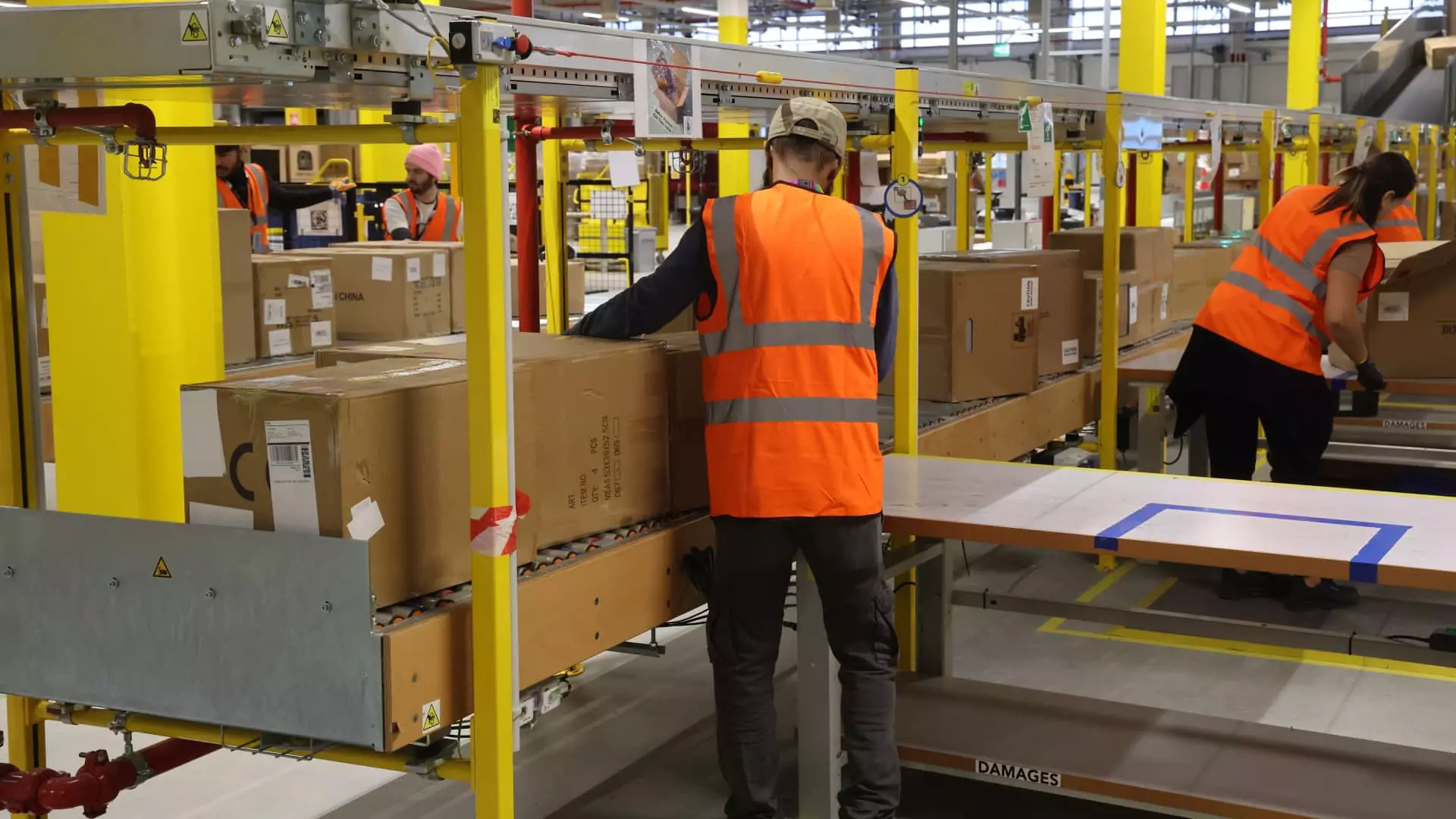Amazon’s announcement of deploying its millionth robot encapsulates the paradoxical nature of modern technological progress. While the company celebrates a milestone that ostensibly signifies innovation and efficiency, it secretly underscores a troubling trend: the relentless encroachment of automation into the human workforce. The narrative spun by Amazon and other tech giants paints a picture of enhanced productivity and economic growth. Yet, beneath this veneer lies a disturbing reality—machines are increasingly replacing human labor, eroding jobs, and transforming societies into playgrounds for artificial intelligence, often at the expense of workers’ livelihoods.
The imagery of a million robots seamlessly coordinating in sprawling warehouses is not merely a testament to human ingenuity but a stark symbol of dehumanization. This technological evolution, championed under the guise of progress, disproportionately impacts low-to-mid-skilled workers whose jobs are most vulnerable to automation. While executives like Scott Dresser highlight how robots are handling repetitive, heavy-lifting tasks, they conveniently sidestep the irreversible consequences for countless employees who find their skills rendered obsolete. This narrative conveniently shifts the focus from the human costs of automation to the perceived benefits of efficiency, glossing over the societal upheaval that accompanies such sweeping changes.
The Fallacy of Job Creation Amid Job Loss
In response to mounting criticism, Amazon’s leadership attempts to paint a rosy picture: robots free human workers from monotonous tasks, paving the way for higher-skilled roles and new opportunities. This rhetoric, however, feels hollow and overly optimistic. The reality is that automation reduces the number of jobs available, not creates them. The claim that new roles in maintenance and engineering will compensate for the jobs lost rings increasingly false, especially considering the scale of layoffs and downsizing across the industry.
CEO Andy Jassy’s own admission that Amazon might see a decline in overall workforce as AI technologies advance exposes the delusion that automation equals job growth. The narrative of “collaboration” between humans and robots conveniently dismisses the stark truth: machines are rapidly replacing human workers in the very sectors that underpin economic stability for millions. The promise of future employment, tied to the supposed need for maintenance and oversight of robotic systems, seems more like a reassuring shadow box than a genuine economic strategy. For many, the comfort of new job categories does little to mitigate the immediate threat of unemployment, undercutting the liberal argument that technology fosters equitable growth.
The Ethical Dilemma of Unchecked Innovation
What compounds this issue is the ethical gray area in which companies operate. The rush to automate is not driven solely by efficiency but also by the desire for monopolistic dominance and increased shareholder profits. This relentless pursuit disregards the broader societal impact—it neglects the human fabric that holds communities together. As Amazon and others accelerate their AI and robotic initiatives, they silently deepen economic inequalities, leading to a future where a shrinking middle class navigates precarious employment landscapes, highly dependent on technological proficiency.
The claims of “creating new opportunities” serve as a feeble buffer against the alarming trend of job displacement. The truth is that automation systematically reshapes the labor market, favoring capital over labor. The focus on technological advancement for its own sake diminishes the fundamental ethical responsibility corporations have toward their workforce and society at large. The idea that robots working alongside human employees will lift everyone is more fantasy than reality. It ignores the social costs of widening inequality, increased job insecurity, and the erosion of economic stability for millions who find themselves pushed out of their livelihoods.
Power and Responsibility in the Age of AI
While the allure of AI-driven efficiency is undeniable, those wielding this power hold a moral responsibility they often choose to neglect. Amazon’s narrative suggests that automation is an inevitable wave that must be ridden out, yet it also highlights a dangerous hubris—the belief that technological progress can be decoupled from its human toll. The company’s focus on “faster, more cost-effective deliveries” masks the societal cost of prioritizing shareholder returns over workers’ rights and well-being.
The current trajectory—where layoffs are frequent and workforce shrinkages are imminent—is symptomatic of a broader societal failing: an undervaluing of human labor in favor of automation. This phenomenon demands a more critical reflection on how we choose to integrate AI into our economies. There are ethical imperatives to ensure that technological advancements serve broader societal interests rather than just corporate profits. Without such scrutiny, the promise of innovation turns into a cynical tool for exacerbating inequality, leaving behind those who built the very foundation of modern commerce.
In a world increasingly dominated by robotics and AI, it is crucial to remember that technology should serve humanity—not the other way around. The unchecked march of automation risks transforming society into a landscape where human dignity and employment are casualties of corporate ambition. The challenge lies in balancing progress with responsibility, ensuring that the benefits of innovation do not come at the expense of the souls behind the machines.

Leave a Reply